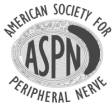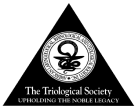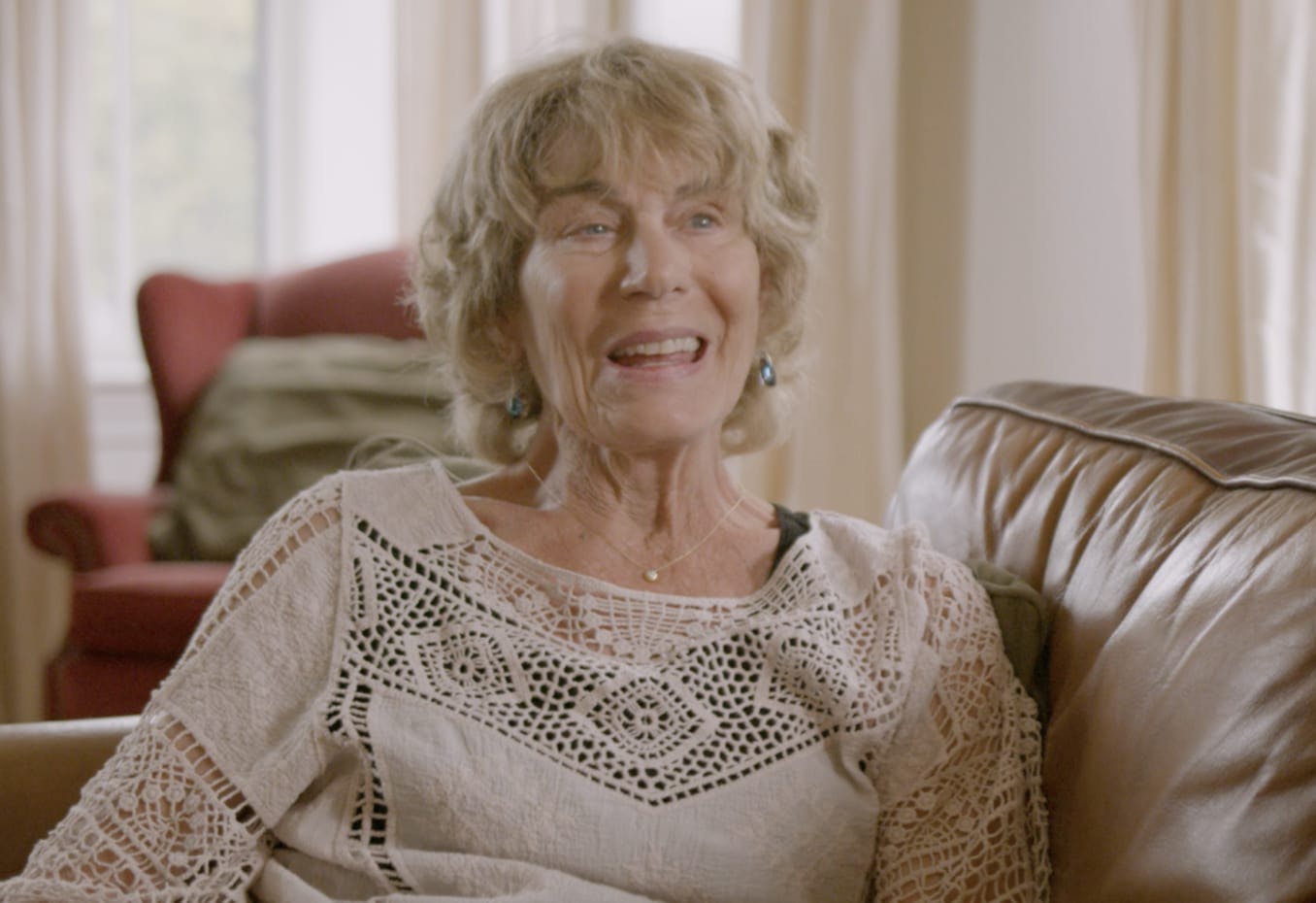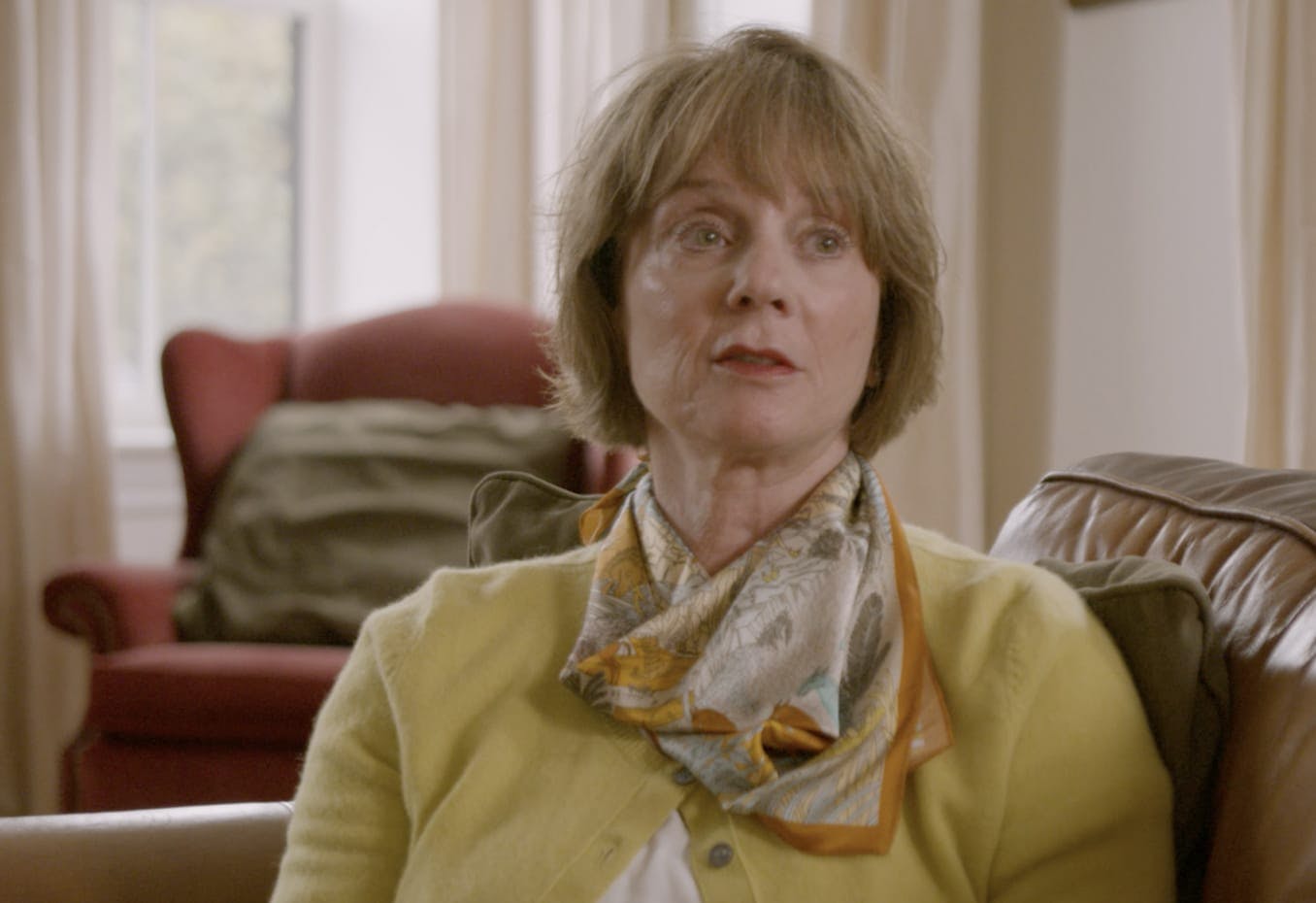World renowned clinician, investigator, and advocate for facial palsy patients based out of Boston, MA
Restoring Facial Harmony
Board-certified in Facial Plastic & Reconstructive Surgery
Board-certified in Otolaryngology-Head and Neck Surgery
Director of Harvard International Facial Nerve Center for 20+ years
Author of 200+ articles advancing the art & science of facial paralysis.


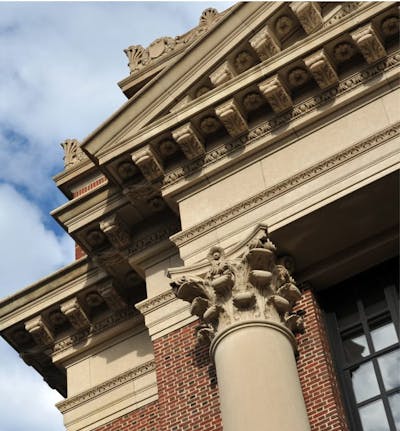

Welcome to the Hadlock CenterWhere transformation meets artistry, inside and out
At the Hadlock Center for Facial Plastic Surgery, you will be under the care of one of America’s most accomplished facial plastic surgeons. Dr. Tessa Hadlock is a Professor of Otolaryngology at Harvard Medical School and brings top-tier skills to every facial procedure.
Facial Aging Procedures Solving functional & aesthetic facial conditions for 30 years
Facial procedures to restore a more youthful look while remaining natural require exceptional surgical skills. Dr. Hadlock performs easy-to-undergo, safe, straightforward interventions that provide subtle, natural-looking outcomes without anesthesia or sedation. You can be confident that your advanced facial rejuvenation in Boston will bring a result that is elegant, subtle, and natural-looking—not overdone or obvious.

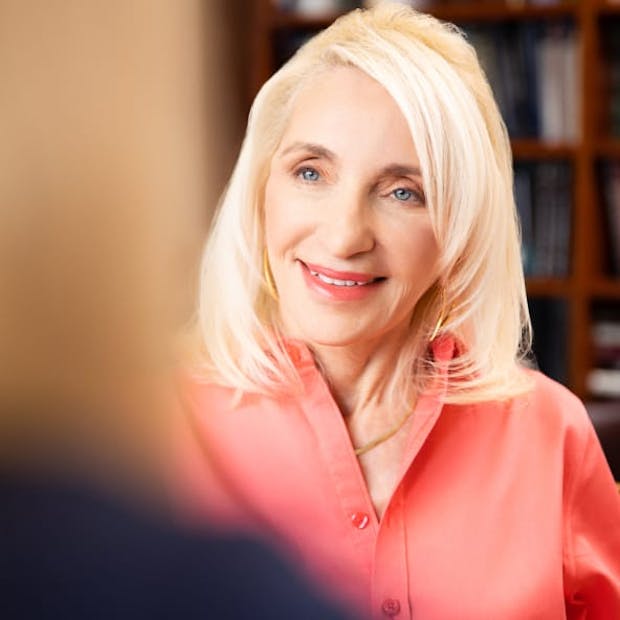
Facial Paralysis Procedures Solving functional & aesthetic facial conditions for 30 years
With over 30 years of experience, Harvard-trained Dr. Hadlock specializes in innovative facial paralysis procedures, skillfully addressing both functional and aesthetic concerns. Her expertise has transformed the lives of patients, restoring facial mobility and enhancing natural beauty. Dr. Hadlock's commitment to excellence and her extensive training at Harvard Medical School underscore her unparalleled dedication to improving the quality of life for those facing facial paralysis.


BiographyMeet Dr. Tessa Hadlock M.D.
Dr. Tessa Hadlock brings extraordinary surgical skills and over three decades of experience to every procedure. She delivers easy-to-undergo, safe, straightforward facial surgeries without anesthesia or sedation for subtle, natural-looking outcomes. She has received many awards and honors, has been named a Boston “Top Doctor” every year for the past 15 years, and serves as a full-chaired professor at Harvard Medical School.

EducationMeet Dr. Tessa Hadlock M.D.
Dr. Hadlock has spent her career at Harvard Medical School as a student, a professor and an academic. Her research has advanced methods for regenerating facial nerve function and her extensive body of work includes numerous clinical outcomes studies and the development of influential tools to gauge the effectiveness of reanimation procedures. Her wealth of knowledge also spans multiple languages—she is fluent in English, French and Spanish.

ExperienceMeet Dr. Tessa Hadlock M.D.
Over the years, Dr. Hadlock has been honored with many awards and acknowledgements that recognize her many contributions to the field of modern facial nerve surgery. These accomplishments include being the first female ENT surgeon at Mass Eye and Ear to achieve the rank of Full Professor, being a full-chaired professor at Harvard Medical School and being recognized as a Boston Top Doctor for the past 15 years and counting.

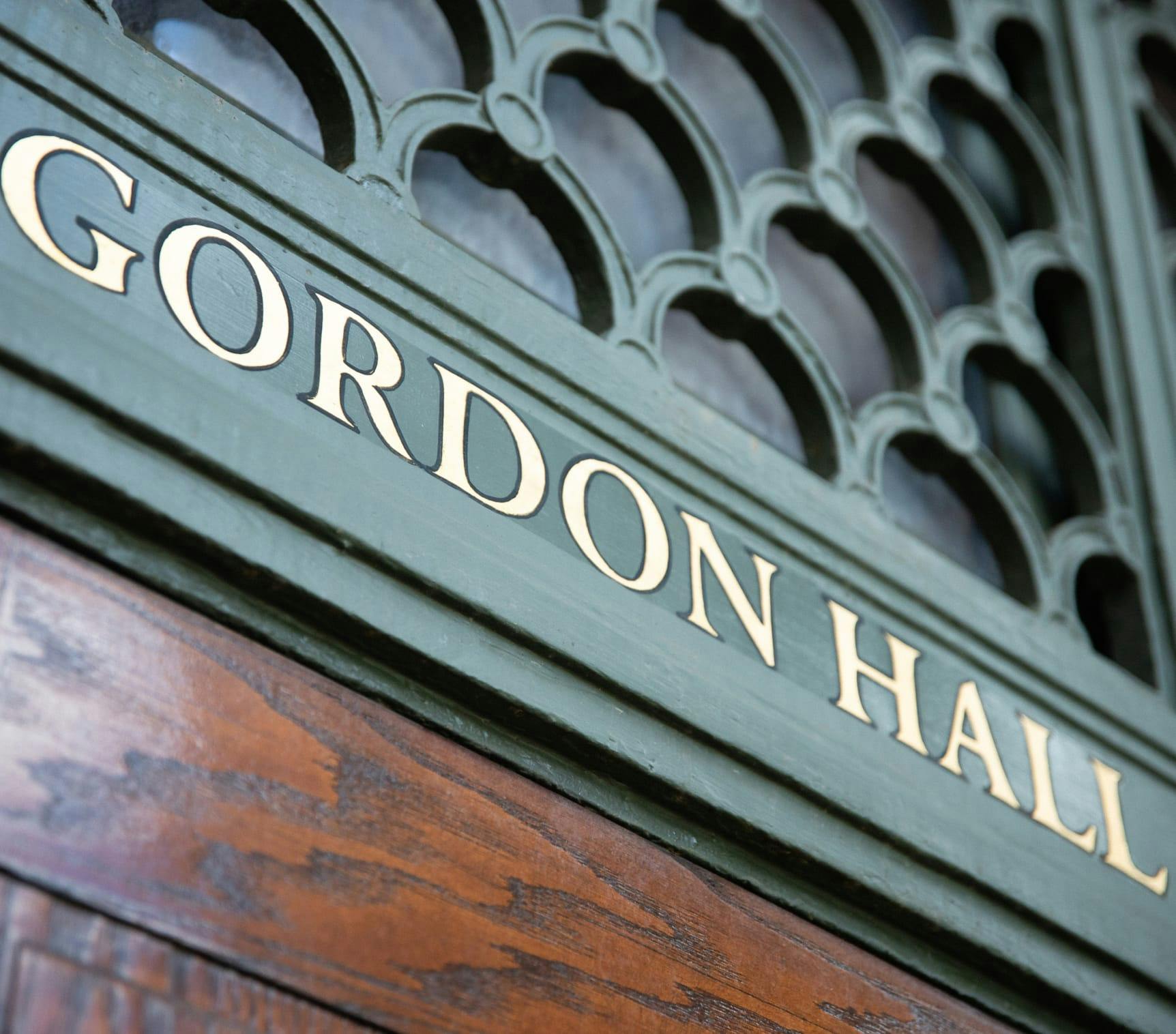
Responsible & Thoughtful Innovation Harvard Evidence-Based Results
Dr. Tessa Hadlock is an internationally recognized facial nerve specialist and a true luminary in facial plastic surgery. She has consistently demonstrated unparalleled expertise and dedication with a career spanning decades. As the first female ENT surgeon at Mass Eye and Ear to attain the rank of full professor at Harvard, Dr. Hadlock has made history. She offers her patients evidence-based results, transforming lives through her work and humanitarian endeavors.
![]()
Empathy
The Hadlock Center understands your unusual problem. With hundreds of peer reviewed articles written, she is well versed in even the rarest of conditions.
Longterm Patient Commitment
Our job is not complete until the patient is smiling and expressing themself to the best level achievable.
Academia
Dr. Tessa Hadlock is the most well-published scholar worldwide in the area of facial paralysis and is a full professor at Harvard Medical School.
Efficiency
Dr. Tessa Hadlock uses proper diagnosis, surgical, medical, and physical therapy as well as adjunctive maneuvers to optimize facial function.
Services The Hadlock Center Values
When you choose the Hadlock Center for Facial Plastic Surgery, you can trust that we prioritize your safety and well-being and preserve your unique features. Under the care of Dr. Tessa Hadlock, a distinguished facial plastic surgeon, we offer minimally invasive, safe, straightforward procedures.

Patient Testimonials
“We cannot thank Dr. Hadlock and her team enough! She has worked miracles for our child, and has given her a life we never thought possible. ”
Dr. Hadlock is on the cutting edge of facial nerve reanimation, a leader, and an inspiration! Her genuine care and support throughout the entire process is exceptional! An...
“I have lived with facial paralysis my entire life with many doctors calling it 'Bell's Palsy.'”
When I was with my husband tending to his Bell's Palsy, Dr. Hadlock noticed my Facial Paralysis and said she could help me as well. She has helped me and my husband—...
“I am an international patient of Dr. Hadlock. She is the expert to see if you experience any facial nerve problems. ”
I feel lucky to be treated by her. Highly recommended!
“Dr. Tessa Hadlock is the most authentic example of a person who takes their God-given talents and uses them to help others in critical need. ”
I was diagnosed with a rare salivary gland cancer on my facial nerve which resulted in significant facial paralysis. The combination of Dr. Hadlock's expertise to quickly ...
“Dr. Hadlock gave me hope for all of my issues. ”
Dr. Hadlock is one of the finest and most professional physicians that any patient could hope for. I can only state that if you are referred to D...
“Dr. Hadlock has been my doctor for over 20 years and she’s always been there for me whenever I need a new procedure. ”
Just recently had a DAO resection and I can’t wait to see the final results. Would be very nice to be able to smile big again. I’m glad to have her as my docto...
“My mother had a serious facial shwannoma with complete right side facial paralysis was operated by Dr. Hadlock, it was a very tricky surgery, which included 5 to 7 (Masseter to Facial Nerve Transfer) besides shwannoma resection and nerve graft. ”
My mother has now regained partial facial movement, facial tone, and improved symmetry compared to the pre-surgery period. Now my mother continues her daily therapy to fur...
“Dr. Hadlock performed surgery in February 2017 to partially restore facial function after my facial nerve was partially removed. ”
She is a talented and compassionate physician and I could not be more pleased with her, her team or the results.
“Dr. Hadlock changed our 16-year-old daughter's life with the surgery she performed to get her smile back.”
She had right-side facial paralysis from a brain tumor. From the first phone call I made, we have had nothing but a positive experience with everyone: Julie is fantastic; ...
“Dr. Hadlock is a highly efficient surgeon with incredibly skilled and sensitive hands. ”
She explains what is necessary and her team provides the backup for a complete explanation, questions answered. She ensures patient comfort throughout procedures, pausing ...
“Dr. Hadlock, Mara Robinson and their teams exude competence and professionalism. ”
Everything from the records team providing the right documents within a day after I requested them, to the office staff helping me obtain required referrals, truly impress...
“I began seeing Dr. Hadlock over a year ago for treatment of facial paralysis caused by RHS. The disorder while rare, is one that Dr. Hadlock knows well and treats with a high level of knowledge, expertise, and empathy.”
During my initial tearful consultation via telehealth, it was immediately clear that this provider fully understood not only the physical impact of my facial paralysis but...
“I have been a patient of Dr. Hadlock for 11 years after a sudden surgical case of facial palsy. I came to the clinic after my daughter searched for help and we found it!!”
I was in emotional shock, physically altered, and felt hopeless. From day one Dr. Hadlock and her team have consistently cared for me with various modes of care. Most of m...



Procedural Efficiency Efficient Surgery, Meaningful Results
Facial plastic surgery is both an art and a science. For refined surgical outcomes to restore nerve function and facial appearance after paralysis or enjoy a refreshed, youthful look, you can trust in a superior outcome when under the care of one of the most accomplished facial plastic surgeons in the area and beyond, Dr. Tessa Hadlock. She employs groundbreaking surgical techniques for advanced facial rejuvenation in Boston and is known for her remarkably natural-looking outcomes.
A Treatment for Every Condition Total 360-degree care of our patients
At the Hadlock Center for Facial Plastic Surgery, we provide comprehensive 360-degree patient care. We are devoted to your well-being, from the initial consultation to post-treatment follow-ups. We are here to guide you through every step, ensuring an empowering, supportive experience on the journey to facial transformation.
FIND YOUR CONDITION
Facial Paralysis
Facial Paralysis
Facial paralysis, often caused by nerve damage or disease, results in the loss of facial muscle control. It can affect expressions, speech, and eye closure, impacting one's appearance and quality of life. Treatment options may include medication, physical therapy, or surgery.
RECOMMENDED TREATMENTS
Facial Nerve Repair
Facial nerve repair involves surgical techniques to restore function in the damaged facial nerve, often due to injury or paralysis. Timely intervention and skilled surgical expertise can lead to improved outcomes.
Explore Facial Nerve RepairSynkinesis
Synkinesis
Synkinesis is an involuntary simultaneous movement of facial muscles occurring during attempted voluntary muscle contractions. It commonly develops after facial nerve injury, causing unintended facial expressions, often requiring rehabilitation.
RECOMMENDED TREATMENTS
Asymmetric Facelift
An asymmetric facelift is a cosmetic surgery procedure that addresses facial asymmetry. It targets specific areas to create a balanced appearance, lifting and rejuvenating one side of the face while maintaining a natural look.
Explore Asymmetric FaceliftFacial Trauma
Facial Trauma
Facial trauma refers to injuries affecting the face due to accidents, falls, or assaults. It can lead to fractures, soft tissue damage, and dental or eye injuries, necessitating medical attention and potential reconstructive surgery.
RECOMMENDED TREATMENTS
Gracilis Free Tissue Transfer
Gracilis free tissue transfer is a surgical procedure in which the gracilis muscle, often from the thigh, is used to reconstruct damaged or missing tissue in various parts of the body, such as the head and neck. It's commonly employed in reconstructive surgery.
Explore Gracilis Free Tissue TransferCongenital Facial Paralysis
Congenital Facial Paralysis
Congenital face paralysis is a condition present at birth, often caused by underdeveloped facial nerves or muscles. It can lead to facial weakness and limited expressions, sometimes requiring surgical interventions to improve function and appearance.
RECOMMENDED TREATMENTS
Gracilis Free Tissue Transfer
Gracilis free tissue transfer is a surgical procedure used to treat congenital face paralysis by grafting the gracilis muscle from the thigh to restore facial movement, improving symmetry and function.
Explore Gracilis Free Tissue TransferRamsay Hunt Syndrome
Ramsay Hunt Syndrome
Ramsay Hunt syndrome, caused by the varicella-zoster virus, results in facial paralysis, ear pain, and a rash within the ear canal or on the ear. Early antiviral treatment is crucial for recovery.
RECOMMENDED TREATMENTS
Static Suspension
Static suspension for Ramsay Hunt syndrome involves surgical techniques to support the paralyzed face. Tendons or synthetic materials are used to lift and stabilize facial muscles, enhancing symmetry and function.
Explore Static SuspensionVestibular Schwannoma
Vestibular Schwannoma
Vestibular schwannoma, a noncancerous tumor, originates from the vestibular nerve and typically affects hearing and balance. Treatment options include observation, radiation therapy, or surgical removal, depending on the tumor's size and symptoms.
RECOMMENDED TREATMENTS
Facial Nerve Repair
Facial nerve repair for vestibular schwannoma may involve microsurgery to preserve or restore facial function, as these tumors often affect the facial nerve. Outcomes depend on tumor size and surgical expertise.
Explore Facial Nerve RepairBilateral Facial Paralysis
Bilateral Facial Paralysis
Bilateral facial paralysis involves the simultaneous loss of facial muscle control on both sides of the face. It can result from various causes, such as infections, neurological conditions, or certain medications, impacting facial expressions and speech. Treatment may include rehabilitation and addressing the underlying condition.
RECOMMENDED TREATMENTS
Selective Denervation
Selective denervation is a surgical procedure for bilateral facial paralysis, involving the removal of overactive muscles to enhance facial symmetry and function. This selective approach is tailored to each patient's needs.
Explore Selective DenervationEar Deformity
Ear Deformity
Ear deformity refers to atypical ear shape or structure, often present at birth or resulting from injury. Cosmetic surgery, such as otoplasty, can correct deformities and improve ear appearance.
RECOMMENDED TREATMENTS
BOTOX for Facial Paralysis
Botox is occasionally used for facial paralysis to reduce muscle stiffness and correct asymmetry. In ear deformity, Botox can help reshape certain muscles but is typically less common than surgical interventions.
Explore BOTOX for Facial ParalysisHead and Neck Cancer
Head and Neck Cancer
Head and neck cancer refers to malignancies that develop in the throat, mouth, nose, larynx, or surrounding structures. Risk factors include tobacco and alcohol use, and treatment options may include surgery, radiation, and chemotherapy.
RECOMMENDED TREATMENTS
Gracilis Free Tissue Transfer
Gracilis free tissue transfer is a surgical technique for head and neck cancer reconstruction. It involves transplanting the gracilis muscle to repair tissue defects, often after tumor removal, restoring form and function.
Explore Gracilis Free Tissue TransferFacial Drooping
Facial Drooping
Facial drooping refers to the sagging or asymmetrical positioning of facial features, often due to muscle weakness or nerve damage. It can result from conditions like Bell's palsy or stroke and may affect expressions and speech.
RECOMMENDED TREATMENTS
Temporalis Tendon Transfer
Temporalis tendon transfer is a surgical procedure to correct facial drooping. The temporalis muscle's tendon is repositioned to restore symmetry and improve facial movement, often used in cases like facial paralysis.
Explore Temporalis Tendon TransferFacial Tumors
Facial Tumors
Facial tumors are abnormal growths that can occur in various facial structures. They may be benign or malignant, affecting appearance and function. Treatment includes surgical removal, radiation therapy, or chemotherapy, depending on the tumor type.
RECOMMENDED TREATMENTS
Fillers for Facial Paralysis
Fillers can be used in facial paralysis to restore volume and symmetry. In facial tumor cases, they may aid in reconstructive efforts, but the approach depends on tumor type and medical advice.
Explore Fillers for Facial ParalysisFacial Aging
Facial Aging
Facial aging involves the natural process of skin and muscle changes over time, resulting in wrinkles, sagging, and reduced elasticity. Factors like genetics, sun exposure, and lifestyle choices influence its progression. Cosmetic procedures can address these signs of aging.
RECOMMENDED TREATMENTS
Aesthetic Treatments
Aesthetic treatments for facial aging encompass various non-surgical and surgical options, including dermal fillers, BOTOX and facelifts. These procedures aim to rejuvenate the face by reducing wrinkles, enhancing volume, and improving skin texture.
Explore Aesthetic TreatmentsBell’s Palsy
Bell’s Palsy
Bell's palsy is a sudden, usually temporary, facial paralysis caused by inflammation of the facial nerve. Symptoms include drooping of one side of the face, often recovering with time or treatment.
RECOMMENDED TREATMENTS
Facial Nerve Repair
Facial nerve repair for Bell's palsy involves interventions like medication, physical therapy, or surgery to restore facial muscle function affected by inflammation. Outcomes vary, with many individuals recovering full or partial function.
Explore Facial Nerve RepairPatient Testimonials Hear about our patients' experience
Hear what our patients have to say about the experience and results under the care of Dr. Hadlock. We gain great personal satisfaction through helping our patients live happier, more confident lives.
In-Office Treatments Meaningful Results without the Hassle
Facial plastic surgery is not a minor decision, with many factors to consider, including the impact of general anesthesia. Dr. Hadlock has developed techniques to enhance, restore, and rejuvenate the facial appearance without the need for anesthesia, performed in-office. This approach allows for exceptional outcomes, faster healing, and results that appear natural, not obvious or overdone. Imagine looking years younger, without the risks associated with anesthesia – these surgeries are a specialty at our practice.
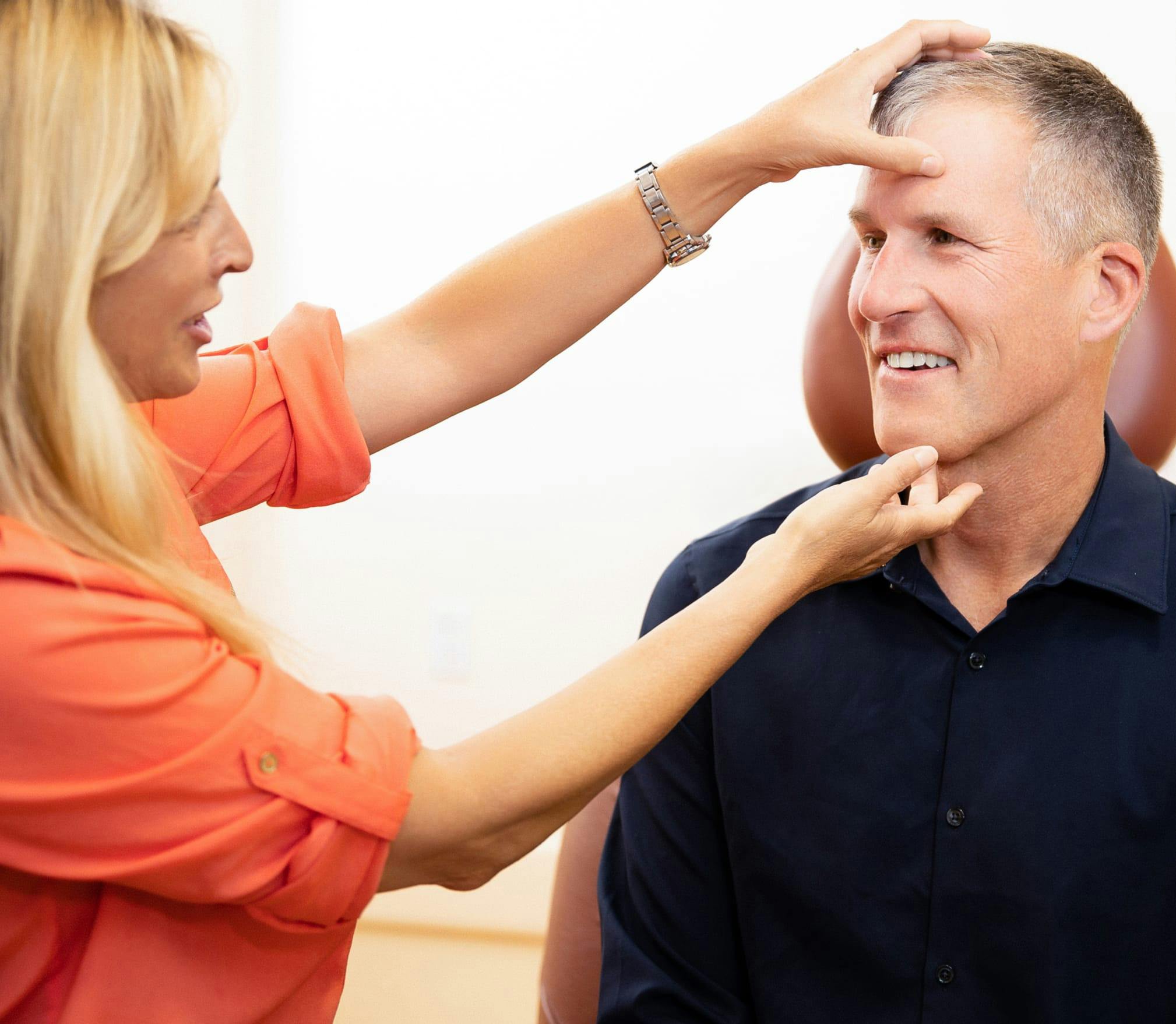
Injectables Restore Your Youth & Confidence
Rarely do patients have the opportunity to experience the benefits of facial injectables with a word renowned facial nerve expert. The difference between a recently trained practitioner and a Harvard-trained doctor with decades of experience does show. Dr. Hadlock is pleased to be able to help her patient with both aesthetic and functional results using facial injectables in the exact anatomical locations where they are needed for a natural and healthy look.


Celebrating Kids
Dr. Tessa Hadlock is a dedicated, world-renowned facial plastic surgeon who celebrates kids at her Boston practice and her volunteer work for the underserved.

FAQs
Get answers to some of the most common questions about advanced facial rejuvenation in Boston, including cosmetic enhancements and refined surgeries to restore nerve function and appearance.

Humanitarian Efforts
Dr. Hadlock performs reconstructive surgeries on children living with congenital deformities in underserved locations, training local doctors on her advanced nerve reconstruction techniques.





